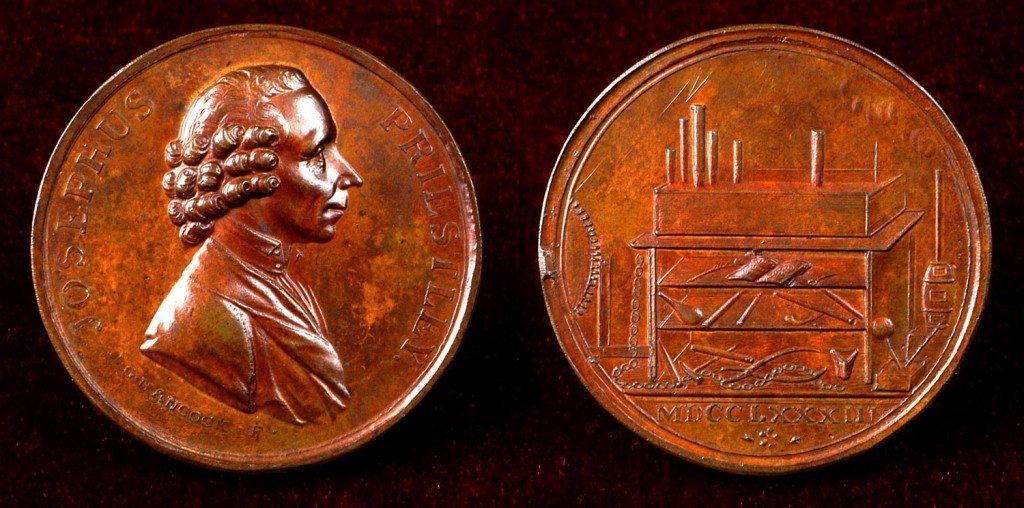Joseph Priestley and his Influence on Education in Birmingham
Image: Penny featuring a bust of Joseph Priestley on one side, and on the other side an apparatus for experiments.
Image from: Birmingham Assay Office (Donor reference: 690)
Text: Ruth Watts
Summary
This article was originally presented in a public day school, “Joseph Priestley and Birmingham” organised by the Centre for Lifelong Learning at the University of Birmingham on Saturday 28 February 2004. Ruth Watts explores Priestley’s influence on education in Birmingham.
Joseph Priestley, celebrated as a great creative scientist but infamous in his day for his radical stance in both theology and politics, was also an progressive educationalist who influenced educational developments both nationally and in Birmingham where he lived from 1780 to 1791. Priestley promoted an environmentalist and rational philosophy of education, underpinned by his experience firstly as a schoolteacher, then as an innovative lecturer in an astonishing range of subjects at the liberal dissenting academy of Warrington, and from 1791 to 1794 a lecturer in science and history at Hackney Academy in London.1 This article will examine Priestley’s educational philosophy briefly and then see how far it was typical of Priestley’s fellow “Lunaticks” and how adherents to Priestley’s ideas translated them into action in Birmingham.
1 See especially J.Priestley, “Introductory Essays to Hartley’s Theory of the Human Mind” (1790; 1st ed. 1775) in The Theological and Miscellaneous Works of Joseph Priestley(ed.) J.T. Rutt, 25 vols. (1817-31) [hereafter termed Works] vol. III, 167-96. See also R. Watts, “Joseph Priestley (1733-1804)” , Prospects, Thinkers on Education, (1995, UNESCO) vol. XXIV, no. 3, 343-53; “Joseph Priestley and Education”, Enlightenment and Dissent, (1983) no. 2, 83-100.
Next in this section »Continue browsing this section
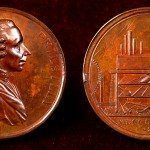 Joseph Priestley and his Influence on Education in Birmingham
Joseph Priestley and his Influence on Education in Birmingham
 Priestley’s Educational Philosophy
Priestley’s Educational Philosophy
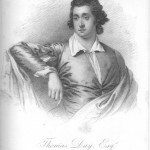 The Lunar Society and Education
The Lunar Society and Education
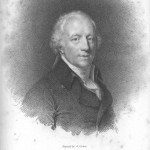 The Lunar Society and Education
The Lunar Society and Education
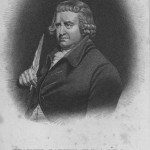 The Lunar Society and Education
The Lunar Society and Education
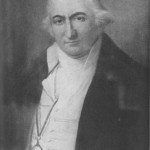 The Lunar Society and Education
The Lunar Society and Education
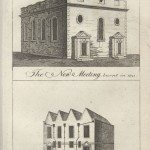 Birmingham: Priestley’s Educational Inheritance
Birmingham: Priestley’s Educational Inheritance
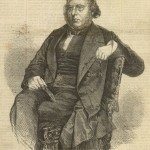 From Priestley to the Hills
From Priestley to the Hills
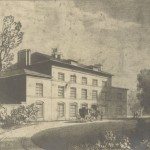 A “Modern” Education
A “Modern” Education
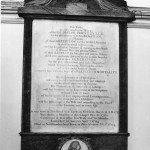 Liberalism and an Educative Society
Liberalism and an Educative Society
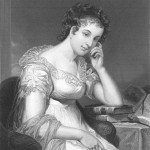 Women’s Education and Emancipation
Women’s Education and Emancipation
Sources and Further Reading
W. H. G. Armytage, ‘The Lunar Society and its Contribution to Education’, University of Birmingham Historical Journal, (1967-8) V, 67.
Constance Hill (ed.), Frederic Hill. An Autobiography of Fifty Years in Times of Reform(1894)
M. D. Hill & Rowland Hill, Plans for the Government and Liberal Instruction of Boys in Large Numbers Drawn from Experience [Public Education]
Rowland & George Birkbeck Hill, The Life of Sir Rowland Hill (1880)
Joseph Priestley, The Theological and Miscellaneous Works of Joseph Priestley (ed.) J.T. Rutt, 25 vols. (1817-31)
Brian Simon, The Two Nations and the Educational Structure 1780-1870 (1974)
Jenny Uglow, The Lunar Men (2001), London: J. .Johnson
Ruth Watts, Gender, Power and the Unitarians, 1780-1860 (1998)
Ruth Watts, “Joseph Priestley and Education”, Enlightenment and Dissent, (1983) no. 2, 83-100
Ruth Watts, “Joseph Priestley (1733-1804)” , Prospects, Thinkers on Education, (1995, UNESCO) vol. XXIV, no. 3, 343-53
To learn about Joseph Priestley and his American home, visit the
Pennsylvania Historical and Museum Commission’s web site



